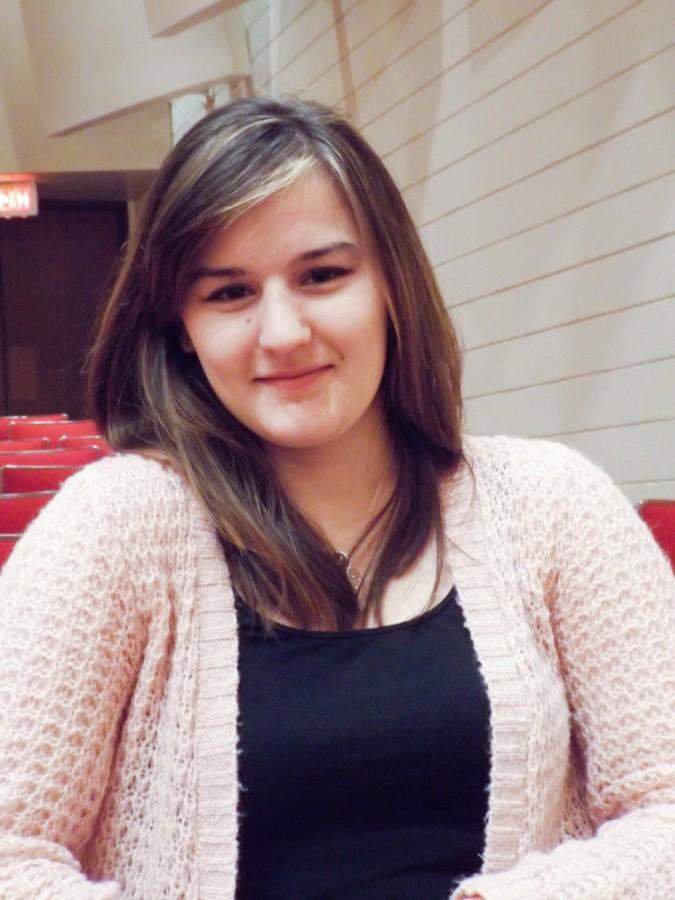Global Studies Concert: Playing Music, Telling Stories
For over a year now people from the Whitman community, Walla Walla community and the global community have been united in the effort to bring music from conflict zones both inside and outside the United States
March 3, 2016
Three departments, dozens of students, five continents. For over a year now, people from the Whitman community, Walla Walla community and the global community have been united in the effort to bring music from conflict zones both inside and outside the United States. And on March 5, this effort is finally coming to fruition. The concert will be held at 7:30 p.m. at Chism Music Hall.
Although “A Musical Intervention” had its formal beginnings last year, the inspiration began far before that. Politics major Jacqueline Rees-Mikula, now a senior, can trace its origins back to a high school trip to Bosnia. “I left with this negative perception and had no intention of going back, but then I took a class on foreign policy, and we were reading people like Thomas Friedman, who mentioned the Balkans as a sort of aside to show how intervention is necessary, but I had been to Bosnia and people there were like, “This is a disaster,” explains Rees-Mikula. This led Rees-Mikula to examine conflict zones and U.S. intervention more closely, eventually returning to the Balkans to study abroad there. Upon her return, “A Musical Intervention” was set into motion.
The concert has evolved and grown since its inception. “Initially I focused on humanitarian bombing, but then I expanded it to military intervention, but then I realized that there aren’t too many people on campus who come from those places, so I opened it up to look at military intervention in the context of cultural imperialism, and in that regard there are a lot of people who feel that struggle every day,” Rees-Mikula explained.
One of these people is Kamna Shastri, a senior Environmental-Sociology major who is performing a musical piece with fellow student Kate Sizer. “The piece was originally performed for Indian television, [and] it appears in an episode about female infanticide, and though the song uses a sparrow to allude to the “girl child…so even though it doesn’t relate specifically to the theme of this concert…I felt like the lyrics conveyed the hurt, regret and hope that comes along with various types of violence, human bombing included,” Shastri said.
Shastri is excited to have her piece included among a variety of world music. “One, I have an excuse to see a good friend and two, to be able to collaborate on music with a friend is really great…I’ve never really been able to share my music with people in this way since I generally practice by myself or every now and then sing solo if there is an opportunity that is appropriate for the kind of music I’m trained in (Indian classical),” Shastri said.
Along with Shastri, a number of Whitman students will be performing pieces, including Rees-Mikula herself. She will be performing with the new Balkan ensemble as well as a solo piece. She described her solo piece as “an international response to a man who came to be known as the ‘Cellist of Sarajevo,’ who would play where massacres happened, risking his own life.”
Faculty will also contribute to the concert, hailing from the Politics, Music and Global studies departments. One of these faculty members is new ethnomusicology professor and founder of the Balkan ensemble, Ian MacMillen, who will be playing a variety of songs from this contested region. “These songs, along with many other variants found from Albania to India and from Armenia to Israel, feature nearly identical melodies and vastly different texts..if at times fodder for ethnocentric claims to origins and authenticity, this group of songs also demonstrates the broad musical sharing and mutual influence that transpired in Southeast Europe and beyond over the course of the twentieth century,” MacMillen said.
MacMillan is glad to see these efforts to bring international music to campus. “Most of my students, for example, are playing instruments that are used in musical styles normalized within American culture, but in Southeastern Europe these are typically paired with local instruments such as the lute-like tambura and the tapan drum, and Global Studies events challenge us to appreciate both the commonalities and the differences in the ways in which they are used,” MacMillen explained.
One of the most exciting aspects of the concert is the acclaimed ensemble Al-Andalus from Portland, who will be performing both Friday and Saturday night. The ensemble, named for the medieval Islamic empire, brings music from all over the Islamic world, with a distinctly modern twist.
“The Musical Intervention” will be the first concert of its kind and marks a larger effort to make the campus more globally conscience. The event will not be a fundraising event, but an educational one. Rees-Mikula explains that, “It’s a moment to pause and reflect before acting.” Shastri elaborates that, “One of the most valuable things about any education is gaining a compassionate and broad view of the world where people and places aren’t compared or contrasted but put in dialogue with one another…Basically, I like the idea of learning about the world in a way that is about sharing understanding about people and not just facts about places and world events.”






